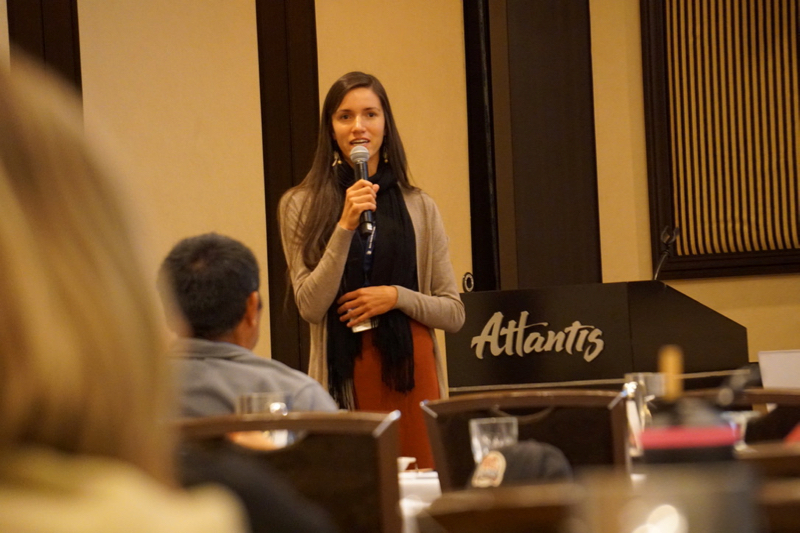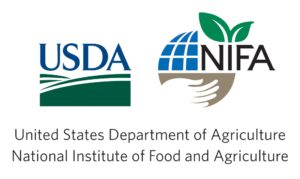Native Waters on Arid Lands Podcast
Episode 14 – Tribal Climate Data Needs with Helen Fillmore
In Episode 14 of the Native Waters on Arid Lands podcast, we speak with NWAL team member Helen Fillmore about her research into the climate data and information needs of tribes located in the NWAL study area. Helen recently earned her master’s degree from the University of Nevada’s Graduate Program of Hydrologic Sciences. Listen to the podcast and read below to learn more about Helen and her work. You can subscribe to this podcast on iTunes, Google Play and Stitcher.
Identifying climate data and information needs
As a graduate student at the University of Nevada, Reno, Helen Fillmore worked with faculty advisor Loretta Singletary, Ph.D., to learn about the climate data and information needs of indigenous communities located within the NWAL project study area. As Helen explains in the podcast, they implemented a 50 question needs assessment survey at the 2016 and 2017 NWAL Tribal Summits which helped the team understand the data and information needs priorities of the communities who were a part of this project and how to best support their climate adaptation efforts.
“We’re really seeing that indigenous communities are leading a lot of the conversation around climate action and trying to adapt to and mitigate climate change…because they’re leading that charge, how do we better help them? How do we fill some of the gaps that they need?” -Helen Fillmore
According to Helen’s study results, a few information needs stood out. One was the need for information on climate change impacts to specific reservation lands. Another need was for information regarding the role that traditional knowledge should play in climate adaptation initiatives. A third takeaway was the need for data on water quality, which is not currently available for many communities in the NWAL study area.
Engaging communities in collaborative research
After graduating from UNR in May 2019, Helen spent the summer working with the Forest Service and Wildlife Society on a project to restore degraded meadow ecosystems in the Tahoe Basin. This project involved collaboration with members of the Washoe Tribe to incorporate traditional management practices that create and restore resilient meadow ecosystems.
As Helen explains in the podcast, she and her team interviewed Washoe elders about traditional management practices for meadow ecosystems, and used that information to inform restoration treatments. Then, they presented what they learned back to the community and youth in workshops to help carry the knowledge forward.
“This was using indigenous knowledge in a real way and community participation to restore these areas. What we also saw was revitalization of more of our language, and revitalization of some of this plant knowledge that has been not lost but set aside for a while.”
-Helen Fillmore
In her work on this Forest Service project, Helen says that was able to use skills that she had developed during her thesis project with the Native Waters project on engaging community in collaborative ways and filling information and data needs, and apply it in another real world setting. In the future, she hopes to continue working with indigenous communities to enhance climate adaptation and resiliency in water resources and hydrology.
Additional Resources
- Fillmore, H., Singletary, L., and J. Phillips (2018). Assessing Tribal College Priorities for Enhancing Climate Adaptation on Reservation Lands. Journal of Contemporary Water Research & Education. 163: (64-78).
More, on the podcast
To learn more about Helen’s work with the Native Waters on Arid Lands project, listen to podcast episode 14, below. Music for this podcast came from Podington Bear (song title: Bit Rio) on the Free Music Archive under a Creative Commons license.
Podcast: Play in new window | Download
Subscribe: RSS




